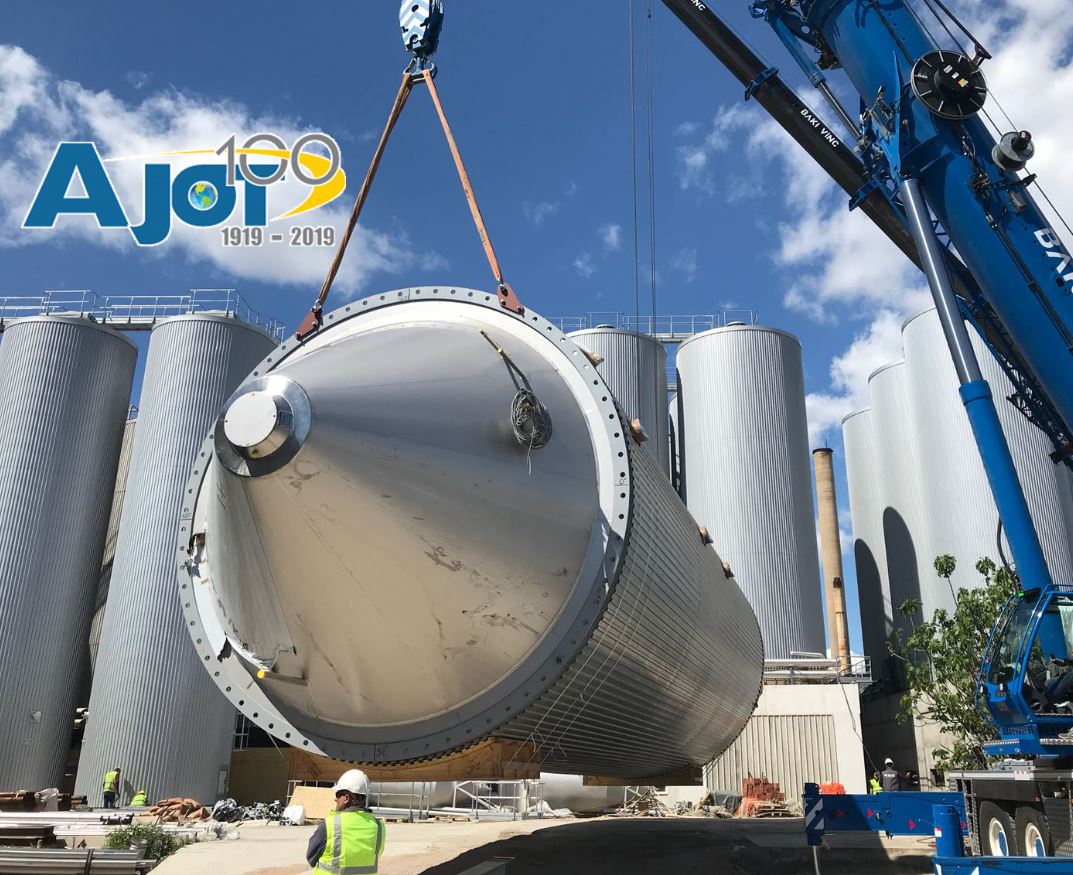
by logisticsplus | Jan 27, 2020 | News
Bahadir Erdil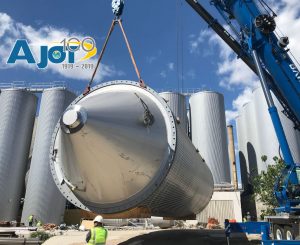 , Global Projects Director for Logistics Plus, was interviewed for a recent article that appeared in the American Journal of Transportation (AJOT). The AJOT is a media source dedicated to providing shippers, carriers, transportation intermediaries, and logistics professionals with coverage of news and events that shape the world of international trade and transportation.
, Global Projects Director for Logistics Plus, was interviewed for a recent article that appeared in the American Journal of Transportation (AJOT). The AJOT is a media source dedicated to providing shippers, carriers, transportation intermediaries, and logistics professionals with coverage of news and events that shape the world of international trade and transportation.
The article is titled “Contingency planning key to any project move” and was written by journalist Matt Miller for the 700th issue of the AJOT. The article discusses the importance of contingency planning for project cargo moves, the heavy lift SPOT team at Logistics Plus, and the multinational nature of project moves. Here are a few highlights from each section of the article.
Contingency Planning
Two years ago, Logistics Plus executed the transport of 13 brewery tanks from Germany to Turkey, each weighing between 24 and 31 metric tons. Bahadir discusses the challenges and planning it took for this complicated operation.
The SPOT Team
The Special Project Operations & Tactics (SPOT) team is just one of the strengths at Logistics Plus. Heavy lift cargo is becoming heavier and more difficult to transport, and it requires lots of engineering and planning.
The Multinational Nature of Project Cargo
It is becoming common for heavy lift items to be built in one country and then transported to another. In order to do so, logistics providers must work with multiple shipyards and regional experts that are capable of handling this oversize cargo.
You can read the entire AJOT article online here: www.ajot.com/contingency-planning-key-to-any-project-move


Learn more about Logistics Plus project cargo logistics at: www.logisticsplus.com/projects
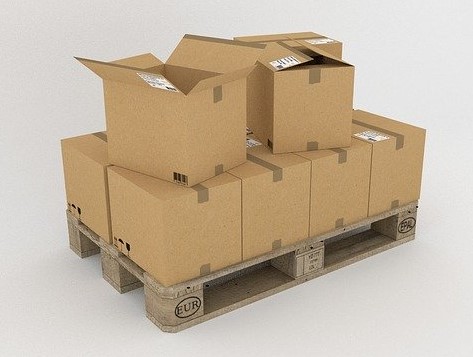
by logisticsplus | Jan 22, 2020 | News
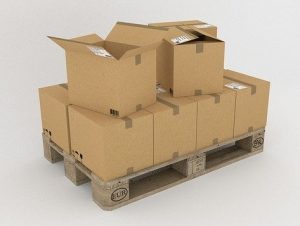 Less-than-truckload (LTL) freight consolidation is a freight strategy that involves combining multiple LTL shipments – all with a common destination – into a full truckload and then shipping it to its final destination. Simply put, rather than shipping direct from the origin to destination with multiple LTL shipments and/or carriers, the shipper is sending all of its freight at once to the final destination. Here are some benefits that LTL freight consolidation offers:
Less-than-truckload (LTL) freight consolidation is a freight strategy that involves combining multiple LTL shipments – all with a common destination – into a full truckload and then shipping it to its final destination. Simply put, rather than shipping direct from the origin to destination with multiple LTL shipments and/or carriers, the shipper is sending all of its freight at once to the final destination. Here are some benefits that LTL freight consolidation offers:
- Pricing simplicity: Receive one quote for a full truckload rather than multiple LTL quotes.
- Improved transit times: Dedicated truckloads mean that all your freight will arrive to the same place at the same time.
- Better shipment transparency: Rather than tracking multiple LTL shipments, focus on one single load.
- Fewer carrier interactions: Fewer carriers means less hassle and interaction.
- Reduced accessorial charges: Rather than paying for the same accessorial on each LTL shipment, only pay them once.
- Increased service levels: A single point of contact and lowered risks due to less handling of the goods.
- Sustainable shipping practices: The carbon footprint is reduced with consolidations since fewer trucks are being used.
Consolidation involves more than just keeping your number of shipments down; LTL freight consolidation represents an opportunity for shippers to find more efficient and cost-effective solutions. However, to freight consolidation does require a higher-level of planning and forecasting within your supply chain. If you are an emerging brand or a small to mid-sized business, a third-party logistics provider can potentially help you combine your LTL shipments that are moving to common destinations.
If you find yourself frequently sending LTL shipments to the same location, contact us today to find out whether freight consolidation is possible for you. If you’d simply like a quote on your next shipment, click the button below.


by logisticsplus | Jan 16, 2020 | News
 Global Trade Alert Message:
Global Trade Alert Message:
The United States-Mexico-Canada trade agreement, or USMCA, was officially passed by the Senate today. This new agreement replaces the North American Free Trade Agreement (NAFTA) and is a major overhaul of the trade rules pertaining to the countries of North America. The biggest changes in the agreement were centered around agriculture, manufacturing, and services.
Senate Majority Leader Mitch McConnel said, “Farmers, growers, cattlemen, manufacturers, small businesses, big businesses. This is a major step for our whole country.” The pact is now being sent to President Trump’s desk for final approval.
You can read the full news release from USA Today here: www.usatoday.com/usmca-replace-nafta
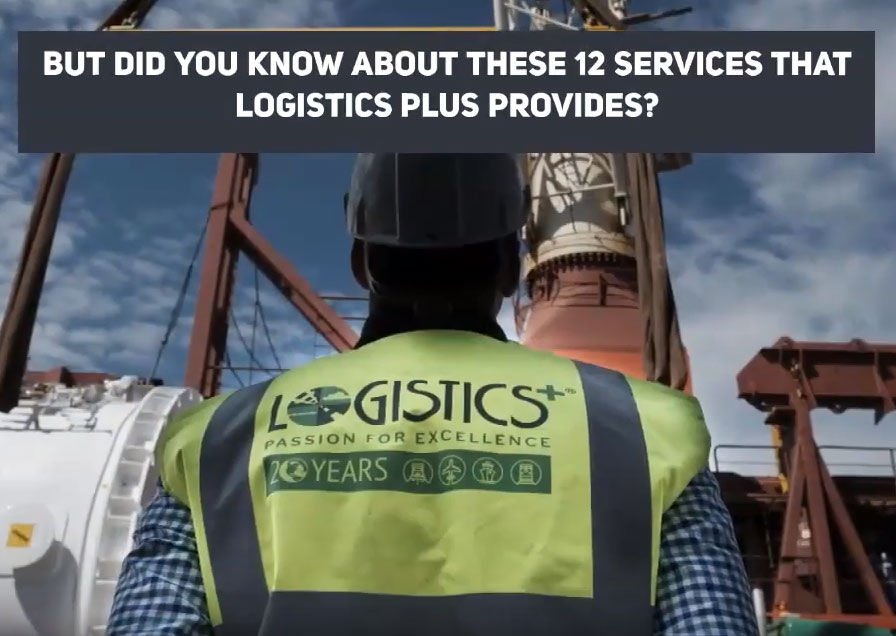
by logisticsplus | Jan 14, 2020 | News
 Logistics Plus is well-known for being an industry-leading freight broker, international freight forwarder, warehousing partner, and third-party logistics (3PL) provider. What you might not know is that, in addition to our traditional 3PL service offerings, we also offer a variety of unique supply chain solutions based on the needs of our clients. Here are 12 services that you may not know about:
Logistics Plus is well-known for being an industry-leading freight broker, international freight forwarder, warehousing partner, and third-party logistics (3PL) provider. What you might not know is that, in addition to our traditional 3PL service offerings, we also offer a variety of unique supply chain solutions based on the needs of our clients. Here are 12 services that you may not know about:
- Freight Claims Management and Resolution
- Freight Bill Audit, Payment, and Recovery
- Product Launches and Rollouts
- Dedicated Truckloads with our own NTL Trucks
- Customs Brokerage and Clearance
- Global Trade Compliance and Training
- Over Dimensional and Heavy-Lift Cargo Logistics
- Global Sourcing and Procurement Support
- Furniture, Fixtures and Equipment Inventory Management
- Business Intelligence and Technology Solutions
- Cargo Insurance and Financing Solutions
- Linguistics and Translation Services
Visit the Logistics Plus services menu on our website to learn more about our various solutions. You can also request a risk-free supply chain analysis or contact us today for more information.


by logisticsplus | Jan 10, 2020 | News
In case you missed it, Brenden Lalli, Director of IT PMO & Global Product Development, was featured in a recent airing of Business Spotlight on WPSE AM 1450/FM 107.1 Radio. Business Spotlight is a 30-minute program airing Fridays at noon. Each segment focuses on a business or organization that is making an impact across the region.
In this segment, Brenden discusses his experience with product development, how technology continues to evolve, his specific role with the company, and more. You can listen to a replay of the interview on the Logistics Plus YouTube Channel below.

 , Global Projects Director for Logistics Plus, was interviewed for a recent article that appeared in the American Journal of Transportation (AJOT). The AJOT is a media source dedicated to providing shippers, carriers, transportation intermediaries, and logistics professionals with coverage of news and events that shape the world of international trade and transportation.
, Global Projects Director for Logistics Plus, was interviewed for a recent article that appeared in the American Journal of Transportation (AJOT). The AJOT is a media source dedicated to providing shippers, carriers, transportation intermediaries, and logistics professionals with coverage of news and events that shape the world of international trade and transportation.![]()



 Less-than-truckload (LTL) freight consolidation is a freight strategy that involves combining multiple
Less-than-truckload (LTL) freight consolidation is a freight strategy that involves combining multiple 


 Logistics Plus is well-known for being an industry-leading freight broker, international freight forwarder, warehousing partner, and third-party logistics (3PL) provider. What you might not know is that, in addition to our traditional 3PL service offerings, we also offer a variety of unique
Logistics Plus is well-known for being an industry-leading freight broker, international freight forwarder, warehousing partner, and third-party logistics (3PL) provider. What you might not know is that, in addition to our traditional 3PL service offerings, we also offer a variety of unique 
